Welcome to Open Access Week 2021!
The theme of this year’s event is “It Matters How We Open Knowledge: Building Structural Equity”. This theme aligns with the UNESCO Recommendation on Open Science. A key component of the UNESCO Recommendation is that open science should embrace “a diversity of knowledge, practices, workflows, languages, research outputs and research topics that support the needs and epistemic pluralism of the scientific community as a whole, diverse research communities and scholars, as well as the wider public and knowledge holders beyond the traditional scientific community, including Indigenous peoples and local communities, and social actors from different countries and regions, as appropriate.” This year’s Open Access Week theme celebrates and creates awareness of the need to establish equity as a central tenet of “open”.
The UNESCO Recommendation is a global standard-setting framework of Open Science, the first of its kind, calling for equity of both producers and consumers of scholarly knowledge. The report represents input from UNESCO’s 193 member countries, including Canada, and the Recommendation clearly states the importance of equity as we move towards a global open science future. Last year, CSP collaborated with Canadian Commission for UNESCO on a report that captured the Canadian perspective on establishing a UNESCO recommendation, titled, “Toward a UNESCO Recommendation on Open Science: Canadian Perspectives”.
Open Access Week provides an opportunity to reflect on the importance of striving for inclusive excellence in scholarship, what it means to remove barriers to make Open Access truly open to everyone, and how we can build structural equity into the fabric of an open future.
Inclusive excellence enriches scholarship
Scholarly research and publishing have long suffered from inequalities and exclusion and there is a need to address those systemic issues as open science advances. Many of the principles on Open Access and open science developed by UNESCO and others highlight equity, diversity, and inclusion as central tenets of an open future. In their Recommendation, UNESCO describes open science as a global public good that “should belong to all humanity and benefit humanity as a whole,” which is why they advocate for science to be open, inclusive, equitable, and embrace a diversity of knowledge.
Research takes place across the globe and it benefits everyone to ensure that scholarship and scholarly communications are as inclusive as possible so that all voices can be heard. We are facing grand challenges that are global in reach. The COVID-19 pandemic and climate change are two current examples that come to mind. Now, more than ever, we need our research community to be inclusive and truly global in scope so that we can come together to identify challenges, gather data, and collaborate to develop solutions that benefit everyone in a truly global and unified way.
Open Access should be open to everyone
Open Access is shifting how research is shared both within the scholarly community and with those stakeholders from outside the research community who wish to access it. With Open Access, barriers have been removed to accessing content, “opening” the potential for anyone in the world to access, read, and use scholarly research in ways that they were never able to before. However, Open Access also introduced a new barrier to publishing as the payment for publishing largely shifted from the subscriber to the authors themselves. The author-pays Article Processing Charge (APC) is cost-prohibitive to many researchers across the globe, particularly those in lower- and middle-income countries. Fortunately, many publishers, including CSP, make waivers and discounts available for researchers in Research4Life countries. Those policies can still be difficult to navigate across different publishers and journals and additional challenges remain, such as predatory publishers and insufficient training on writing and navigating the peer-review process. Over the past year, CSP has been a member of the Research4Life Open Access Task Force, which is taking on several initiatives with the goal of creating more OA opportunities for Research4Life authors.
The future is open
While the adoption of Open Access has been underway for decades and progress has been slow during that time, we are fast-approaching Open Access overtaking subscription content. Plan S and other research funder policies have accelerated the movement towards OA. In 2020, >36% of all scholarly research was published as “paid” OA, and an even higher percentage of global research is “accessible” in repositories, archives, and pre-print servers. However, as Andrea Powell noted in her white paper on “Achieving an Equitable Transition to Open Access,” we know that this OA growth hasn’t been as strong for researchers in lower- and middle-income countries (LMICs) compared to other parts of the world. Consistency and transparency of waiver policies is a key element of improving this trend, but we also need to work towards increasing the research capacity of authors in LMIC, including providing training to make it easier to submit and publish in journals of the author’s choice — publishers can and should play a key role in facilitating that.
Open Access Week serves as an excellent catalyst for discussion on the importance of equity, diversity, and inclusion in scholarship. As we move forward, we must maintain these principles as the foundation of an open future. The transition to open needs to be free of barriers and we must find ways to include all researchers in this shift, to enable a fair, transparent, and inclusive open future. Continued conversation, thought, and effort is required to get there, involving all stakeholders in the scholarly ecosystem.
Join us on Twitter and Facebook to continue the #openaccess conversation.
Interested in CSP’s Open Access initiatives? Check out our new Open Access Agreements landing page featuring the University of California and Canadian Science Publishing Open Access Agreement. Keep an eye on CSP’s Open Access page for more updates coming soon.




